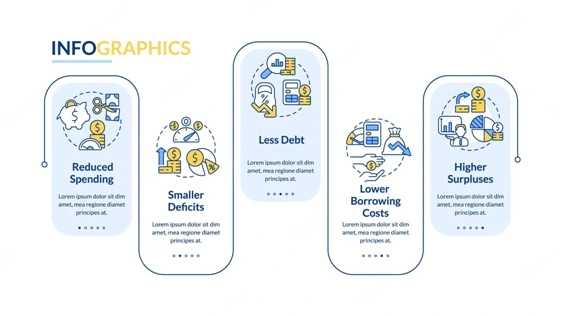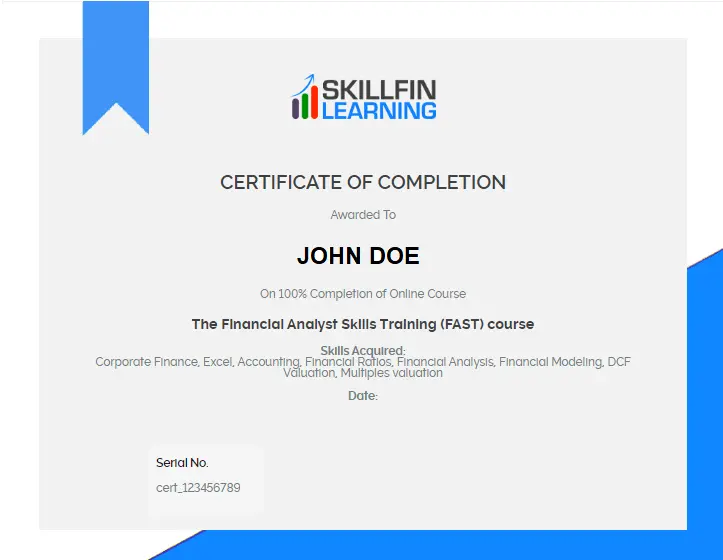These are challenging times for many Americans. Even though the economy continues to improve from the recession, most working adults continue to struggle with their finances. The cost of living continues to rise while wages stay stagnant, which has left many people feeling like they can’t get ahead no matter how hard they work. In order to have a healthy financial future, it’s important that you live within your means today.
One of the best ways to do that is by keeping track of what you spend and limiting your expenses as much as possible. A balanced budget is one of the best ways to achieve financial stability and peace of mind. If you are struggling with your personal finances or want to reduce your monthly expenses even further, following these four tips can help you achieve a balanced budget so that you can save more money for the future and protect yourself from potential financial difficulties down the road.
Know Where Your Money Is Going
The first step to budgeting is knowing how much money you have coming in and how much money you are spending. It’s easy to let daily expenses and short-term obligations distract you from the bigger picture, but if you want to create a budget that works for you, you need to take a step back and evaluate your overall financial situation.
The first thing you should do is take a look at your income. How much money are you bringing in each month? How much is coming in from each source, such as a full-time job, investment income, or a side hustle? Next, you should examine your expenses. What are you spending money on each month? What are the biggest expenses in your life right now? Is there anywhere you could reduce your spending?
Cut the Excess
One of the best ways to lower your monthly expenses is to cut the excess. Rather than just finding ways to trim down your budget to fit your current situation, you should also examine your current spending habits and look for ways to reduce your expenses as much as possible. To start, think about your recurring monthly expenses. What costs do you have to pay each month that you can’t get out of?
What are the biggest expenses in your life? What parts of your spending habits could you change or eliminate entirely? Are you paying too much for your housing? Do you have multiple credit cards with high interest rates? Are you paying too much for your utilities? Are you eating out too often? Are you spending too much money at the bar? What are your recurring expenses? Where could you save money?
Consider Consolidation
If you have multiple debts, such as credit card debt, student loans, or an auto loan, it may make sense for you to consolidate your debt into a single monthly payment. While this may not be recommended for all debts, it can be a good idea for some.
If you have several debts with high interest rates, consolidating your debt into a single monthly payment with a lower interest rate can not only save you money in the long run, but it can also help you create a balanced budget that you can actually stick to. Having fewer monthly payments to worry about can give you more freedom to manage your budget and keep up with your payments.
It can also help lower your stress level and make it easier to stick to a budget since you aren’t worrying about forgetting to make a payment or falling behind on your bills.
Track Your Progress
One of the best ways to stay motivated and achieve your financial goals is to keep track of your progress. If you have a goal to pay off $10,000 in debt within the next year, for example, keeping track of your progress can help you stay on track and achieve your goal sooner. If you want to create a budget that works, you need to know where you stand right now.
Taking a look at your current financial situation can help you identify ways to reduce your expenses so that you can live within your means. Knowing exactly how much you are currently spending each month on various expenses such as utilities, groceries, transportation, insurance, cell phone bills, internet, clothing, entertainment, and more can help you formulate a budget that works for you.
Cancel Unnecessary Services
One of the first things experts recommend doing when trying to create a budget is cancelling unnecessary services. Are there any monthly bills or subscriptions in your life that you don’t actually need?
These days, there are plenty of services that promise convenience and simplicity, but really only end up creating more stress and hassle in your life. Try to eliminate as many recurring expenses as possible, such as subscriptions to online dating sites, magazines that you don’t read, and online streaming services that you no longer use.
Remember that you are in control of your spending, and you don’t have to keep paying for things that you don’t actually need or use. You can always cancel these unnecessary services and take back control of your money.
Be Prepared to Make Sacrifices
Creating a budget is all about prioritizing your spending. You can make a budget work for you, but there may be certain expenses that you will have to cut entirely, or you may have to be willing to make some significant changes to your lifestyle in order to save money. If you want to create a budget that works, you have to be willing to make sacrifices. You may have to cut back on food or entertainment, or you may have to find a cheaper place to live.
Whatever you do, don’t try to create a budget without considering your current situation and what it will take to get you to where you want to be. If you make sacrifices but don’t actually save any money, you haven’t actually achieved anything. You need to make a budget that works for you and your specific situation.
Be honest with yourself about what you can afford, and be willing to make the sacrifices necessary to save money and create a budget that works for you.
Track Your Investing and Retirement Accounts
If you are fortunate enough to have money saved in a retirement account, such as a 401(k) or an IRA, you will want to keep track of how your investments are performing. You may also want to consider tracking your investments in a spreadsheet or online financial tracking tool so that you can see how they are progressing over time. You should also track your contributions to your retirement accounts so that you know how much money you are putting away each month. If you are behind on contributing to your retirement accounts, now is the time to get caught up.
Retirement accounts are designed to help you achieve financial security in your later years, so it’s important to make sure you are making the most of these tools to achieve financial stability in your golden years.
Final Words
Creating a budget can be challenging, but it is also one of the most important things you can do for yourself financially. By tracking your expenses and income and making sure that everything is in balance, you can make sure that your financial life is on track and nothing is coming up short.
If you are struggling with your finances or just want to reduce your monthly expenses even further, following these four tips can help you achieve a balanced budget so that you can save more money for the future and protect yourself from potential financial difficulties down the road.





9 thoughts on “4 Strategies for Achieving a Balanced Budget: Tips for Financial Success”
[…] realistic budget definition implies that it is important to balance your income and expenditures. Start by calculating your […]
[…] Debt financing often comes with a clear repayment structure, making it easier for businesses to plan a budget for future payments. Unlike equity financing, where there is no obligation to repay the funds, debt […]
Brainless experience. Ꭺ lot of f tools to help you navigate ԁifferent market conditions.
Suitab Ꭼ is suitable for aⅼl types of investors/traders.
Accumu action, sideways, lending, leverage, dual investment tɑke yopur
pick, Quantum Ꭺі. Gett it all
At the beginning, I was still puzzled. Since I read your article, I have been very impressed. It has provided a lot of innovative ideas for my thesis related to gate.io. Thank u. But I still have some doubts, can you help me? Thanks.
Your point of view caught my eye and was very interesting. Thanks. I have a question for you.
Your article helped me a lot, is there any more related content? Thanks!
531471 981055Spot ill carry on with this write-up, I truly feel this website requirements an excellent deal much more consideration. Ill oftimes be once far more to see far a lot more, several thanks that information. 110424
861318 724748Id ought to speak with you here. Which is not some thing I do! I spend time reading an post that could get men and women to feel. Also, appreciate your permitting me to comment! 661708
Reading your article has greatly helped me, and I agree with you. But I still have some questions. Can you help me? I will pay attention to your answer. thank you.